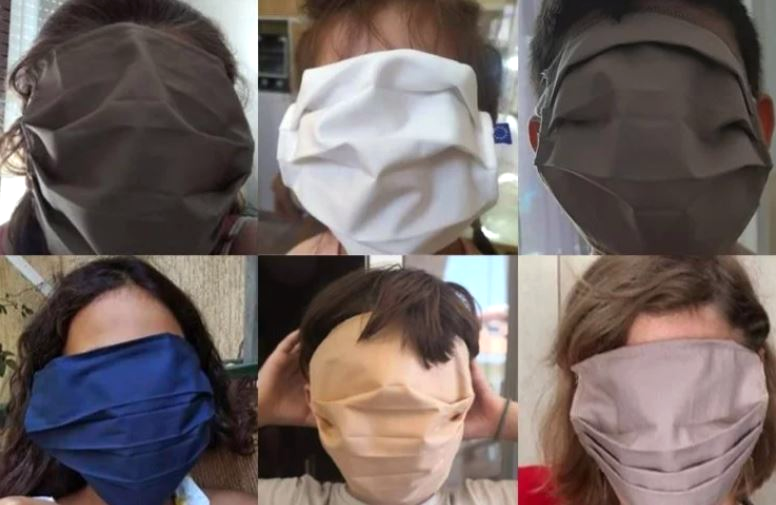Amid a large increase of COVID-19 infections in Greece, a wave of school occupations has spread across the country.
Students accuse the government of having failed to make preparations, ahead of last month’s opening of schools, to protect the student population from the pandemic. As a result, they are forced to have classes in a highly pressured and unhygienic environment.
Up to 25 students are very often crammed into small classes, obliged to wear masks all day long. Break time has been heavily reduced and excursions suspended altogether. Providing cloth masks for free was the single measure that the government took to protect schoolchildren from COVID-19. This turned into a fiasco when it was revealed that the masks it had ordered were grossly oversized.
Outside a drab school under occupation in the Athens district of Petralona, I overheard a boy having a conversation with a middle-aged woman leaning over the balcony of a nearby building. The woman complained about the loud music coming from the school at night. The boy, one of the leaders of the occupation, apologised politely and then started explaining the student demands:
“There is no funding. We demand more teachers, more cleaning personnel…”
“Otherwise we’re gonna burn the place down!” shouted a classmate on a BMX bike.
“Shut up and let me do the talking!” the first boy intervened.
A passer-by took the side of the students: “They’re kids! Let them live!”
The wider reality facing these teenagers is bleak: public secondary education in Greece is hugely underfunded and in dire need of modernisation.
Half the teachers are above 50 years old, since hirings have virtually stopped during the past decade of harsh austerity. Their job prospects are abysmal, even if they manage to get a university degree: Greek graduates have the lowest employment rate throughout the OECD. No wonder almost half a million young professionals (out of a total Greek population of 11 million) have migrated since the crisis began.
The boy tells me that the students organized their first vote when the school principal demanded proof that those in favor of the occupation were in the majority. He explains how they conducted a secret ballot using a cardboard box, which they sealed when all the votes had been cast. Out of 280 students, 4 voted against, 3 voted blank and the rest in favor. Ever since, they have been voting to decide various matters on their own initiative. During the 3 weeks that the school has been occupied, they have held no less than 8 votes. Grassroots democracy requires regular affirmation of the popular will.
In the meantime, they try to win over support from the neighborhood, keep the school clean and prevent vandalisms, so that the police or angry parents do not have an excuse to forcefully enter the building. Grassroots democracy requires constant vigilance.
Greek law provides for the election, during the start of every school year, of a 15-member student organ to represent the student community in each school. The occupiers decided not to hold that election, out of fear that those 15 students would be singled out and targeted by the Ministry of Education or prosecuting authorities. Nevertheless, they continue to deliberate and decide collectively in their assemblies. Grassroots democracy requires bypassing the “democratic” institutions imposed upon you by a system that wants to control you and, instead, self-instituting your political community by inventing your own.
The boy complains: “Out of all the students who voted to continue the occupation in the last vote, only 80 were here last night. You can’t hold an occupation with so few people!” Grassroots democracy requires high levels of participation.
Like in many parts of the world, teenagers in Greece have been subjected to an overwhelming social pressure to study, to get a degree, to do well.
The ultimate source of this pressure is the ultra-competitive job market that awaits them when they finish school. For most, free time has evaporated, taken up by private lessons after school hours to make up for the serious deficiencies of public education. This puts considerable strain on their parents’ finances, which further intensifies the pressure on them.
In ancient Greece the phrase “Σχολήν άγω” meant “to live at one’s leisure”. Σχολή (skolē) meant leisure, free time, idleness. But because when you have no work to do you start having philosophical discussions, soon the meaning of the word shifted to “using your free time to cultivate your spirit”. Already from the age following Alexander’s conquests, the word had come to signify teaching and the place where teaching is held. This is the root of the modern European words school, schule, école, scuola, escuela, škola, школа, shkollë, etc.
For Greek teens, occupying their school is both an exercise in radical democracy and a way to reclaim precious leisure time.
The lost chance to be able to reflect and deliberate in a time and space of their own, free from the influence of adults who insist that they succumb to a predicament which makes no sense. These students seize the day by collectively dreaming, planning and resisting. The most important lesson of all: Grassroots democracy requires leisure time.
Recognising that the profits of large companies like Google are produced collectively but appropriated privately, DiEM25 has proposed a Universal Basic Dividend for all people without exception, to be financed by a portion of these profits.
Such a measure would alleviate extreme poverty, social exclusion, workplace humiliation and exploitation, even trafficking and forced migration. Furthermore, it could largely replace today’s welfare state, which is characterised by stigma, if not exclusion. Free from the agonising pressure to earn enough to cover their basic needs, people would be able to follow their own interests in pursuit of self-fulfillment. Finally, simply by virtue of granting people the luxury of leisure time, a Universal Basic Dividend promises to liberate an enormous democratic potential.
Photo Source: Ppap on Twitter.
Do you want to be informed of DiEM25's actions? Sign up here










